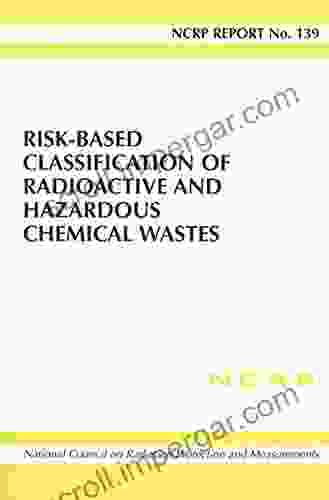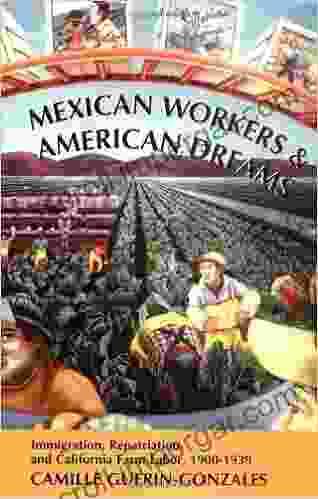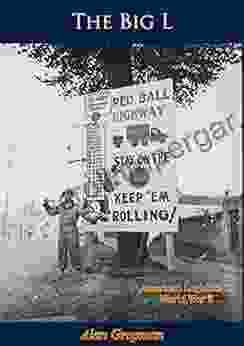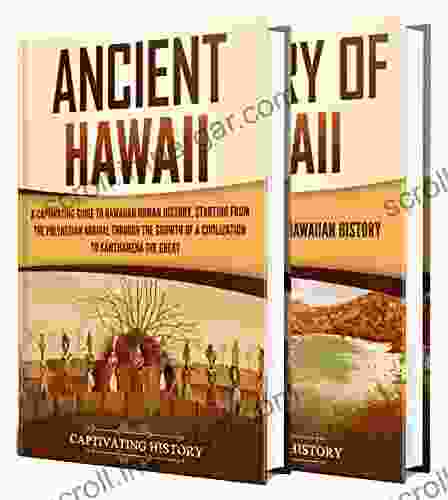Risk-Based Classification of Radioactive and Hazardous Chemical Wastes: A Comprehensive Guide

The National Council on Radiation Protection and Measurements (NCRP) has developed a comprehensive report on the risk-based classification of radioactive and hazardous chemical wastes. This report provides a systematic and scientifically sound approach to classifying waste based on its potential risks to human health and the environment.
4.1 out of 5
| Language | : | English |
| File size | : | 4819 KB |
| Text-to-Speech | : | Enabled |
| Screen Reader | : | Supported |
| Enhanced typesetting | : | Enabled |
| Word Wise | : | Enabled |
| Print length | : | 663 pages |
The NCRP report is based on a review of the latest scientific research on the health effects of radiation and hazardous chemicals. The report also takes into account the potential for accidents and other events that could lead to the release of radioactive or hazardous materials into the environment.
The NCRP report recommends a risk-based approach to classifying waste. This approach takes into account the following factors:
- The type of waste
- The amount of waste
- The physical and chemical properties of the waste
- The potential for the waste to be released into the environment
- The potential for the waste to cause harm to human health or the environment
The NCRP report recommends that waste be classified into one of four categories:
- Category 1: Waste that poses a high risk to human health or the environment
- Category 2: Waste that poses a moderate risk to human health or the environment
- Category 3: Waste that poses a low risk to human health or the environment
- Category 4: Waste that poses no risk to human health or the environment
The NCRP report also recommends that waste be managed in a way that minimizes the risks to human health and the environment. This may involve treating the waste to reduce its radioactivity or toxicity, or disposing of the waste in a safe and secure location.
The NCRP report is a valuable resource for anyone who is involved in the management of radioactive or hazardous chemical wastes. The report provides a comprehensive and scientifically sound approach to classifying waste based on its potential risks to human health and the environment.
Benefits of the Risk-Based Classification System
The risk-based classification system developed by the NCRP has a number of benefits. These benefits include:
- Improved protection of human health and the environment
- More efficient and cost-effective waste management
- Increased public confidence in the safety of waste management practices
The risk-based classification system is a valuable tool for anyone who is involved in the management of radioactive or hazardous chemical wastes. The system can help to ensure that waste is managed in a way that minimizes the risks to human health and the environment.
The NCRP report on the risk-based classification of radioactive and hazardous chemical wastes is a valuable resource for anyone who is involved in the management of these wastes. The report provides a comprehensive and scientifically sound approach to classifying waste based on its potential risks to human health and the environment.
The risk-based classification system developed by the NCRP has a number of benefits, including improved protection of human health and the environment, more efficient and cost-effective waste management, and increased public confidence in the safety of waste management practices.
The risk-based classification system is a valuable tool for anyone who is involved in the management of radioactive or hazardous chemical wastes. The system can help to ensure that waste is managed in a way that minimizes the risks to human health and the environment.
To learn more about the NCRP report on the risk-based classification of radioactive and hazardous chemical wastes, please visit the NCRP website at http://www.ncrponline.org.
4.1 out of 5
| Language | : | English |
| File size | : | 4819 KB |
| Text-to-Speech | : | Enabled |
| Screen Reader | : | Supported |
| Enhanced typesetting | : | Enabled |
| Word Wise | : | Enabled |
| Print length | : | 663 pages |
Do you want to contribute by writing guest posts on this blog?
Please contact us and send us a resume of previous articles that you have written.
 Book
Book Novel
Novel Page
Page Chapter
Chapter Text
Text Story
Story Genre
Genre Reader
Reader Library
Library Paperback
Paperback E-book
E-book Magazine
Magazine Newspaper
Newspaper Paragraph
Paragraph Sentence
Sentence Bookmark
Bookmark Shelf
Shelf Glossary
Glossary Bibliography
Bibliography Foreword
Foreword Preface
Preface Synopsis
Synopsis Annotation
Annotation Footnote
Footnote Manuscript
Manuscript Scroll
Scroll Codex
Codex Tome
Tome Bestseller
Bestseller Classics
Classics Library card
Library card Narrative
Narrative Biography
Biography Autobiography
Autobiography Memoir
Memoir Reference
Reference Encyclopedia
Encyclopedia Grant Goddard
Grant Goddard R Andrew Mcdonald
R Andrew Mcdonald Jenna Glatzer
Jenna Glatzer Tim Tran
Tim Tran Paul Hughes
Paul Hughes Richard Muti
Richard Muti Vamik D Volkan
Vamik D Volkan John Dollard
John Dollard Carlo Natali
Carlo Natali Stephen W Day
Stephen W Day Carla Willig
Carla Willig Carolyn Keith Hopper
Carolyn Keith Hopper Carole Henrysen
Carole Henrysen Catherine Hendy
Catherine Hendy Carl D Murray
Carl D Murray Paul Honeywill
Paul Honeywill Drew Young
Drew Young Captain Lynn Rippelmeyer
Captain Lynn Rippelmeyer Carolyn Ahl
Carolyn Ahl David Bach
David Bach
Light bulbAdvertise smarter! Our strategic ad space ensures maximum exposure. Reserve your spot today!
 Charles BukowskiFollow ·13.5k
Charles BukowskiFollow ·13.5k F. Scott FitzgeraldFollow ·13.4k
F. Scott FitzgeraldFollow ·13.4k Zachary CoxFollow ·10k
Zachary CoxFollow ·10k Raymond ChandlerFollow ·18.9k
Raymond ChandlerFollow ·18.9k Emmett MitchellFollow ·7.3k
Emmett MitchellFollow ·7.3k Miguel NelsonFollow ·9.4k
Miguel NelsonFollow ·9.4k Mitch FosterFollow ·16.5k
Mitch FosterFollow ·16.5k Christian BarnesFollow ·19.5k
Christian BarnesFollow ·19.5k

 Henry Hayes
Henry HayesVery Short Introductions: A Gateway to Knowledge...
In the realm of academia, where vast oceans of...
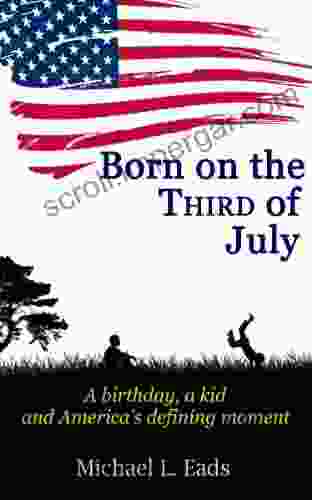
 Jean Blair
Jean BlairBorn on the Third of July: An Unforgettable Journey of...
Born on the Third...

 Benjamin Stone
Benjamin StoneEnvironmental Offsets: Striking a Balance between...
In the face of pressing environmental...
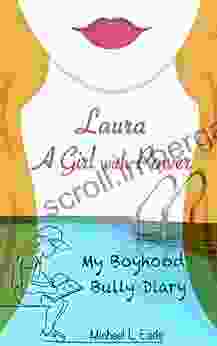
 Colin Foster
Colin FosterGirl With Power: My Boyhood Bully Diary
In this gripping and...

 Colin Foster
Colin FosterUnveiling the Unseen: The Collected Works of Charles Fort
Prepare to venture into...

 Gabriel Mistral
Gabriel MistralUnveiling the Hidden World of the English Republican...
Dive into the captivating world of 'The...
4.1 out of 5
| Language | : | English |
| File size | : | 4819 KB |
| Text-to-Speech | : | Enabled |
| Screen Reader | : | Supported |
| Enhanced typesetting | : | Enabled |
| Word Wise | : | Enabled |
| Print length | : | 663 pages |


